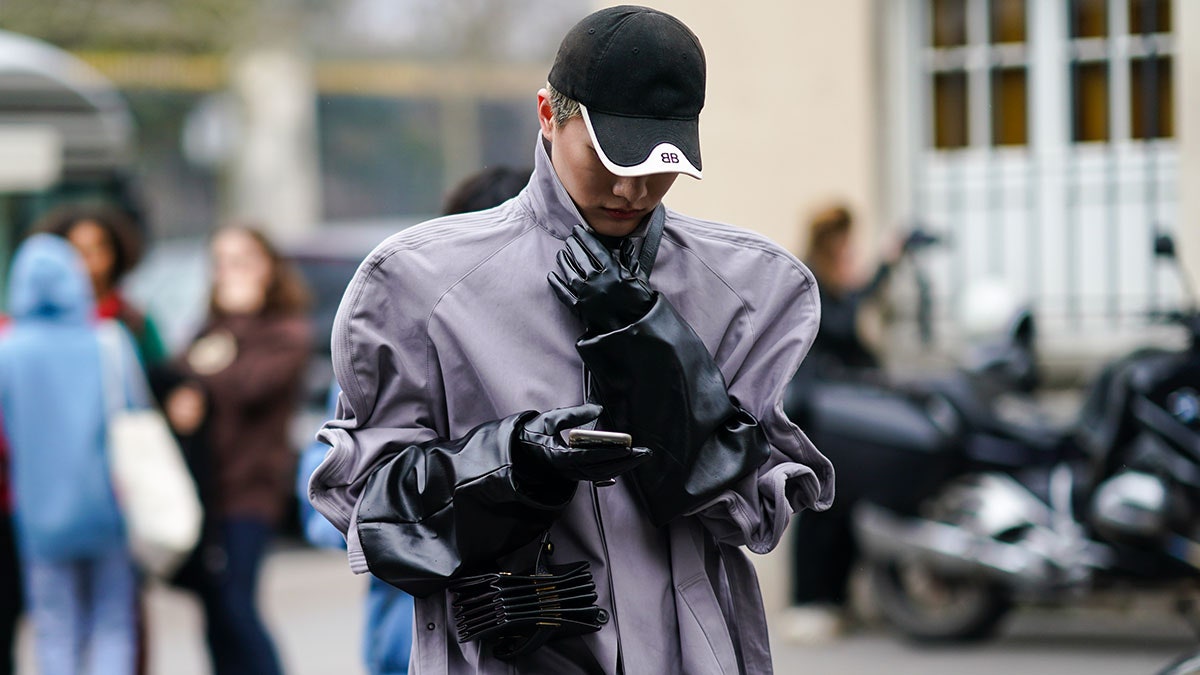
The T-shirts and hoodies come in black or white and include both Archive and Balenciaga branding with a list of Archive’s albums on the back. They start at $750 (for tees) and up to $1,250 (for hoodies) and are available starting today as a limited edition drop via the brand’s website and select stores. Adding a soundtrack essentially builds on the clothing’s “personality”, Franck says.
Demna has often turned to music to expand Balenciaga’s world. ‘Balenciaga Music’ includes a series of playlists curated by the brand, featuring Radiohead, Muse and Cardi B, in addition to Archive. “Music is a big part of my life and is an integral part of Balenciaga’s culture,” Demna writes on a webpage announcing the project. “Balenciaga Music was created to share my favourite musical artists and their personal tastes and influences. We have now expanded this project to give a more personal and complete music experience with exclusive content and interactive technology.”
The new song, called ‘Patterns’, was composed exclusively for Balenciaga Music and is not available anywhere else or through any other channel. Balenciaga Music previously offered limited-edition merchandise, exclusive content and interactive campaigns, in addition to catalogues of sounds created for runway shows. More broadly, music has become a key marketing tool for fashion. Diesel recently partnered with electronic radio station NTS, while Burberry and Adidas Originals have partnered with music platform Colors. Prada has hosted concerts and DJ shows, extending invites to those who hold its NFTs.
Digital IDs can give brands a window of insight into how and when a customer is wearing — and scanning — its products. Brands have tested use-cases that encourage the wearer to scan it repeatedly; many share exclusive behind-the-scenes content or have considered offering discounts on future purchases. For luxury, digital passports can serve as authenticity clearances, storing information about the materials, construction and provenance, as well as record new events like repairs or resales.
Maintaining a relationship with the customer after a product is sold has been a unique value proposition of brands that attach digital IDs to goods. Other brands to work with Eon include Gabriela Hearst, Chloé, Coach, Net-a-Porter, Target and Vestiaire Collective. More brands are expected to establish DPPs going forward, as the European Union is set to announce standards for digital product passports in 2025, with 18 months for brands to implement them. Eon has received commitments from the CEOs of brands including Burberry, Stella McCartney and Brunello Cucinelli to introduce digital IDs across all products by 2025.
Eon isn’t the only company offering digital IDs for luxury goods. Others include Prada and Tod’s, using the Aura Blockchain Consortium, and Mugler, working with Arianee.
Eon’s Eon Exchange enables companies that have already integrated with the technology to add on features that are already programmed for the DPP; it currently has 50 partners, including resale platform Vestiaire Collective. When enabled, a customer can scan the ID to quickly list a product for resale on the site, and details such as colour and construction are automatically populated. She says that the partnership with Balenciaga includes plans to extend the technology to other products and features. “They have a vision beyond just music. They subscribe to that vision of the operating system for the product.”
Comments, questions or feedback? Email us at [email protected].
What’s next in fashion tech: Digital passports and mixed reality
Balenciaga presses go on resale following successful pilot
Chloé launches ‘instant resale’ using digital IDs on Vestiaire Collective
